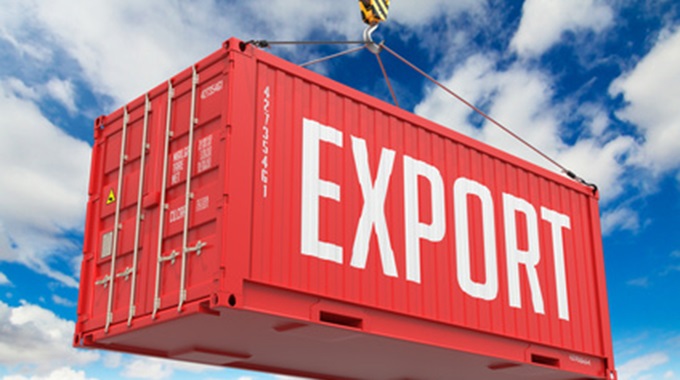
The Sunday Mail

AFRICA has bountiful export opportunities for Zimbabwe, buoyed by the continent-wide trade agreement that seeks to eliminate barriers to trade.
Trade Focus
Allan Majuru
During the Intra-Africa Trade Fair (IATF), held recently in Cairo, Egypt, participating Zimbabwean companies were exposed to the growing demand for diversified local products across the continent in sectors such as processed foods, agricultural inputs and implements, construction and engineering, leather and leather products, horticulture and essential oils.
The IATF, which is Africa’s largest trade fair, also presented a unique window for Zimbabwe to understand the market of the host country, Egypt, and identify opportunities local companies can tap into.
Egypt’s market has been growing over the past few years, with statistics showing that the African continent has been failing to meet demand there.
However, during the first Zimbabwe-Egypt Business Forum — organised by ZimTrade on the sidelines of IATF — some of the leading distributors in the market confirmed they are prepared to source from Zimbabwe if local producers can offer high quality products at fair prices.
According to Trade Map, Egypt’s total input bill was US$79,7 billion in 2022, up from US$60,3 billion in 2021.
Leading suppliers come from countries that include China, Saudi Arabia, the United States, India, Russia, Kuwait, Germany and Türkiye.
Last year, the bulk of these imports were mineral fuels and mineral oils (US$15,07 billion); cereals (US$6,41 billion); nuclear reactors, boilers, machinery and mechanical appliances (US$5,84 billion); plastics (US$4,62 billion); and iron and steel (US$4,28 billion).
Other top imports included electrical machinery and equipment; pharmaceutical products; vehicles and organic chemicals.
Opportunities for Zimbabwe
Of the products imported in Egypt, the market offers easy wins in sectors such as meat, essential oils, horticulture, and agricultural inputs and implements.
Egypt’s meat market is huge and statistics show that the continent is failing to meet the country’s demands. The good news is that Zimbabwe is one of the few countries now allowed to export meat to Egypt.
Of note is that the meat must be halal-certified, and there are ongoing efforts to ensure Zimbabwean suppliers meet this requirement.
According to Trade Map, Egypt imported meat and edible meat offal worth around US$1,32 billion in 2022, up from US$1,21 billion the previous year.
Currently, Egypt is Africa’s largest importer of meat and edible meat offal, with frozen bovine animals constituting the largest share of the imports, of around US$1 billion.
Other top imports from the sub-sector in Egypt in 2022 were edible offal (US$186 million), meat and edible offal of fowls (US$90 million), fresh or chilled bovine meat (US$21,2 million) and meat of sheep or goats (US$10,1 million).
Egypt’s leading suppliers last year were India, Brazil, the US, Australia, Sudan, Paraguay and Colombia.
The iron and steel market in Egypt is growing, owing to infrastructure developments taking place in the market.
According to Trade Map, Egypt imported iron and steel worth around US$4,28 billion in 2022, up from US$3,51 billion in 2021.
During the same period, imports of articles of iron or steel in Egypt grew from US$1,31 billion to US$1,65 billion.
The largest suppliers of iron and steel in the market are the United Kingdom, China, Belgium, India, Türkiye, Russia and Netherlands.
Zimbabwe is positioned to be Africa’s largest producer of iron and steel once the Manhize Iron Steel Plant being set up in Mvuma is operating at full capacity.
Projections are that the plant will start producing 1.2 million tonnes per year, making it easy for the country to meet the demand in Egypt.
The country has drier regions and relies on imports for some of its horticultural requirements, giving opportunities for Zimbabwean producers.
Figures from Trade Map show that imports of horticultural products in Egypt were US$1,72 billion in 2022, up from US$1,52 billion in 2021.
Of this figure, dried leguminous vegetables accounted for the largest share (US$439,6 million); apples, pears and quinces (US$358,6 million); tea (US$272,7 million); and coffee (US$197,3 million).
There is an emerging market for sesame seeds in Egypt, and distributors are looking for reliable suppliers as demand exploded in recent years and is projected to grow rapidly.
Figures show that imports of sesame seeds grew from around US$5,6 million in 2016 to US$88 million in 2022.
Currently, Egypt’s major suppliers are Sudan and India.
There are ready buyers looking to import sesame from Zimbabwe, and local producers are encouraged to engage ZimTrade if they have good volumes to sustain demand.
There are also opportunities in the essential oils sector and heritage-based exports, and this is one of the areas youth-led businesses can tap into.
Greatest potential lies in areas Zimbabwe enjoys competitive advantage based on natural endowments.
There is room for local companies to tap into the market of heritage-based products as the country has abundant wild fruits
and herbs, which can be found in all provinces.
Products with potential include baobab powder, and skincare products made from a combination of mongongo and coffee, baobab and lemon grass, Ximenia and lemon, and Kalahari and moringa.
These products were on display during IATF and were a major hit among visitors to the Zimbabwe Pavilion.
Playing around with common indigenous plants and fruits in producing cosmetics will give Zimbabwe-produced essential oils and heritage-based products a competitive edge, and will make it easy for them to connect with more distributors in Egypt.
Outside exports, there are opportunities for collaborations between Zimbabwean manufacturers and partners in the market.
For example, Egypt has strengths in areas such as leather production and the clothing sector, which can benefit Zimbabwean producers through increased linkages with partners.
Allan Majuru is the ZimTrade CEO.



